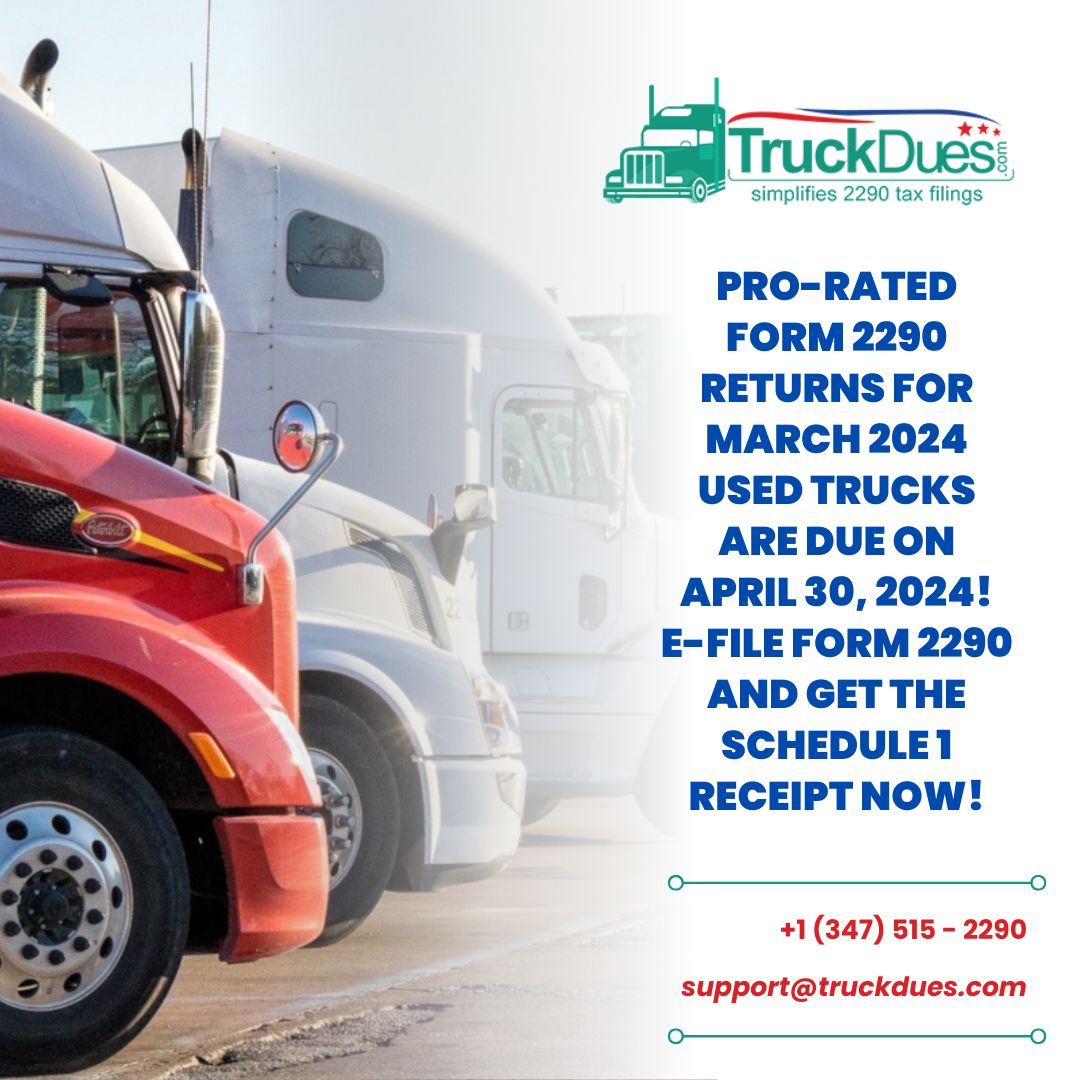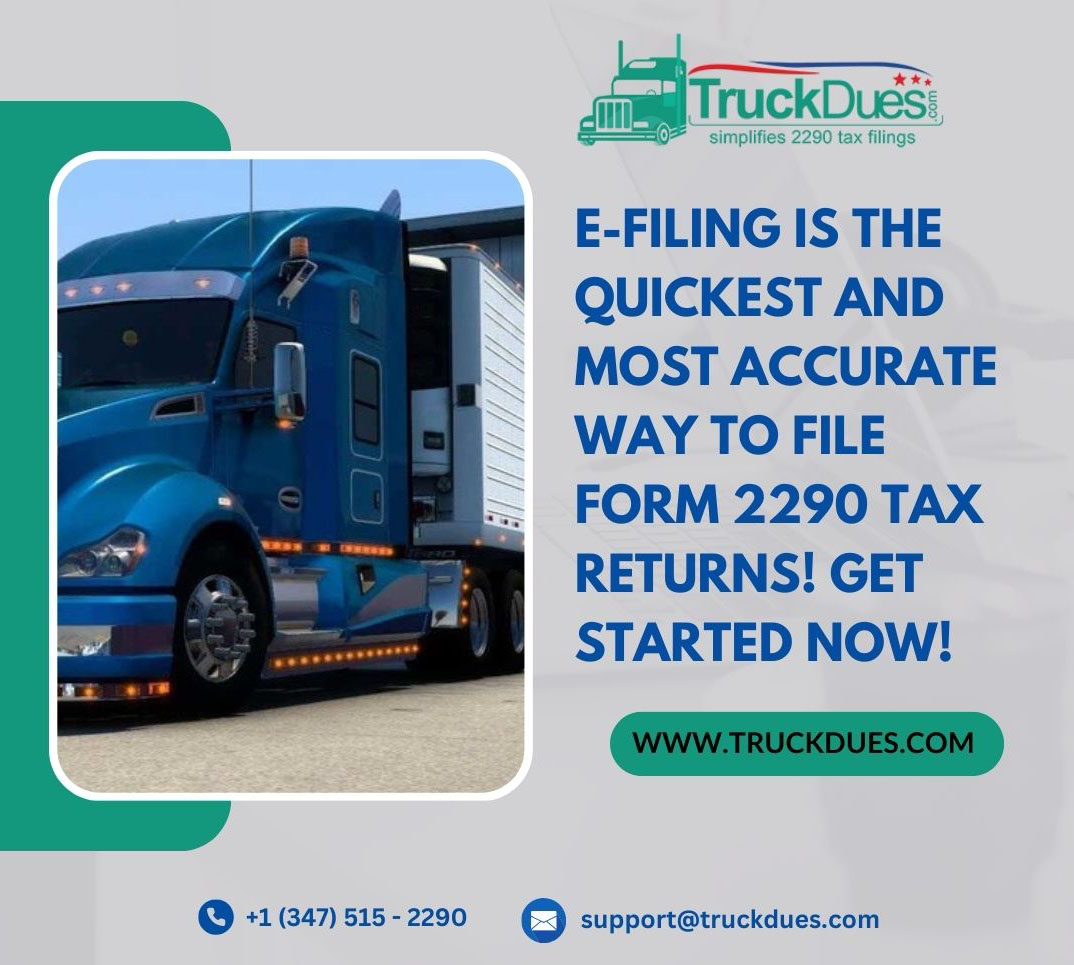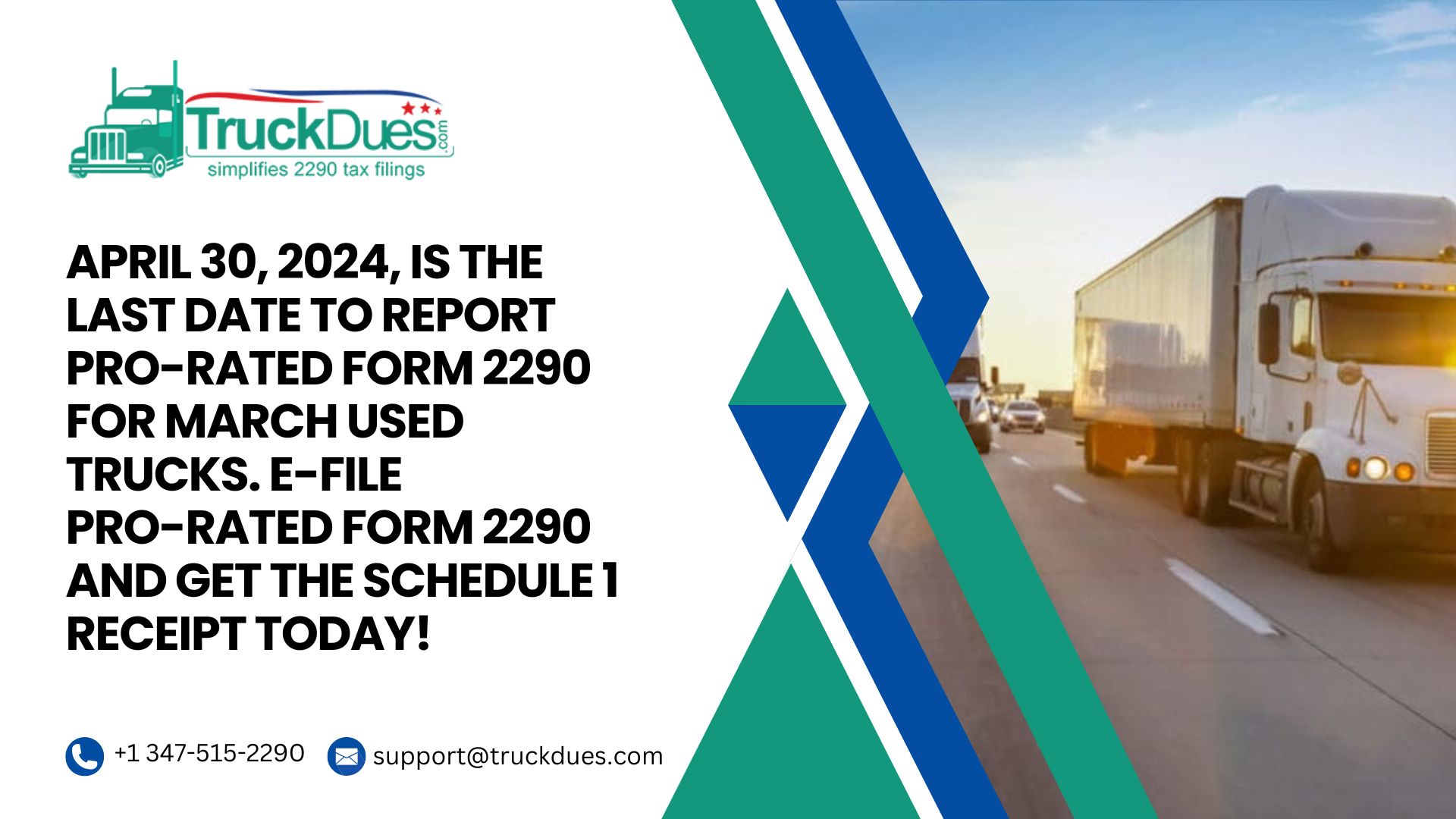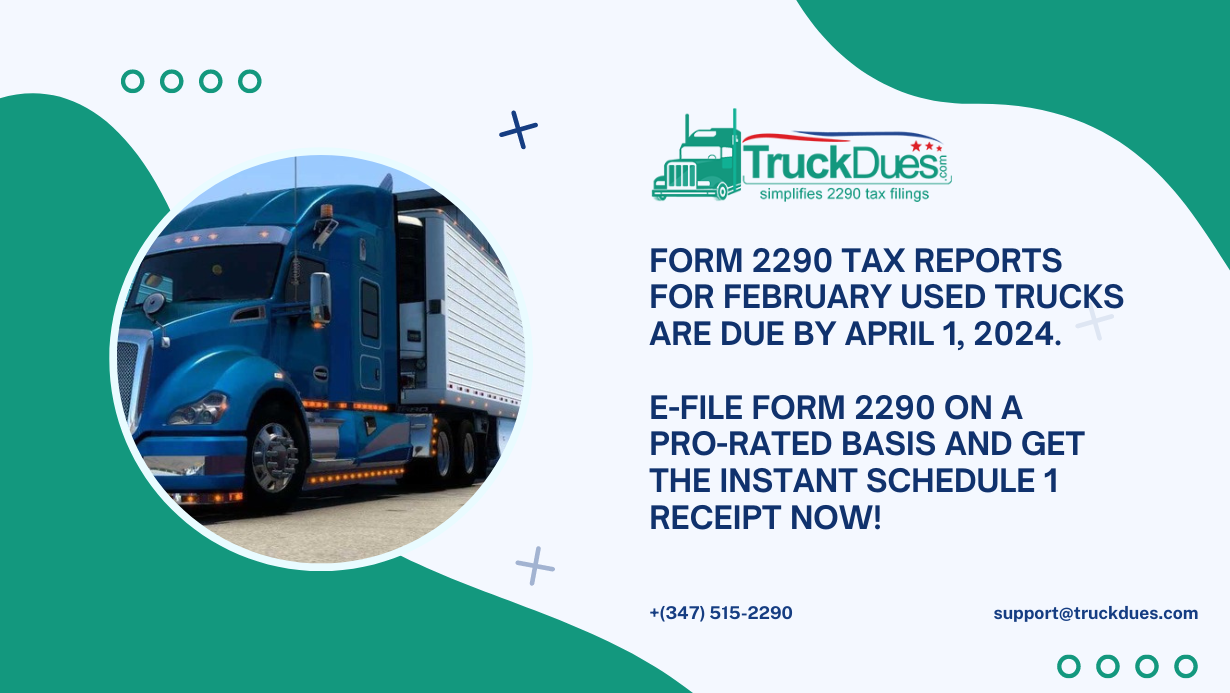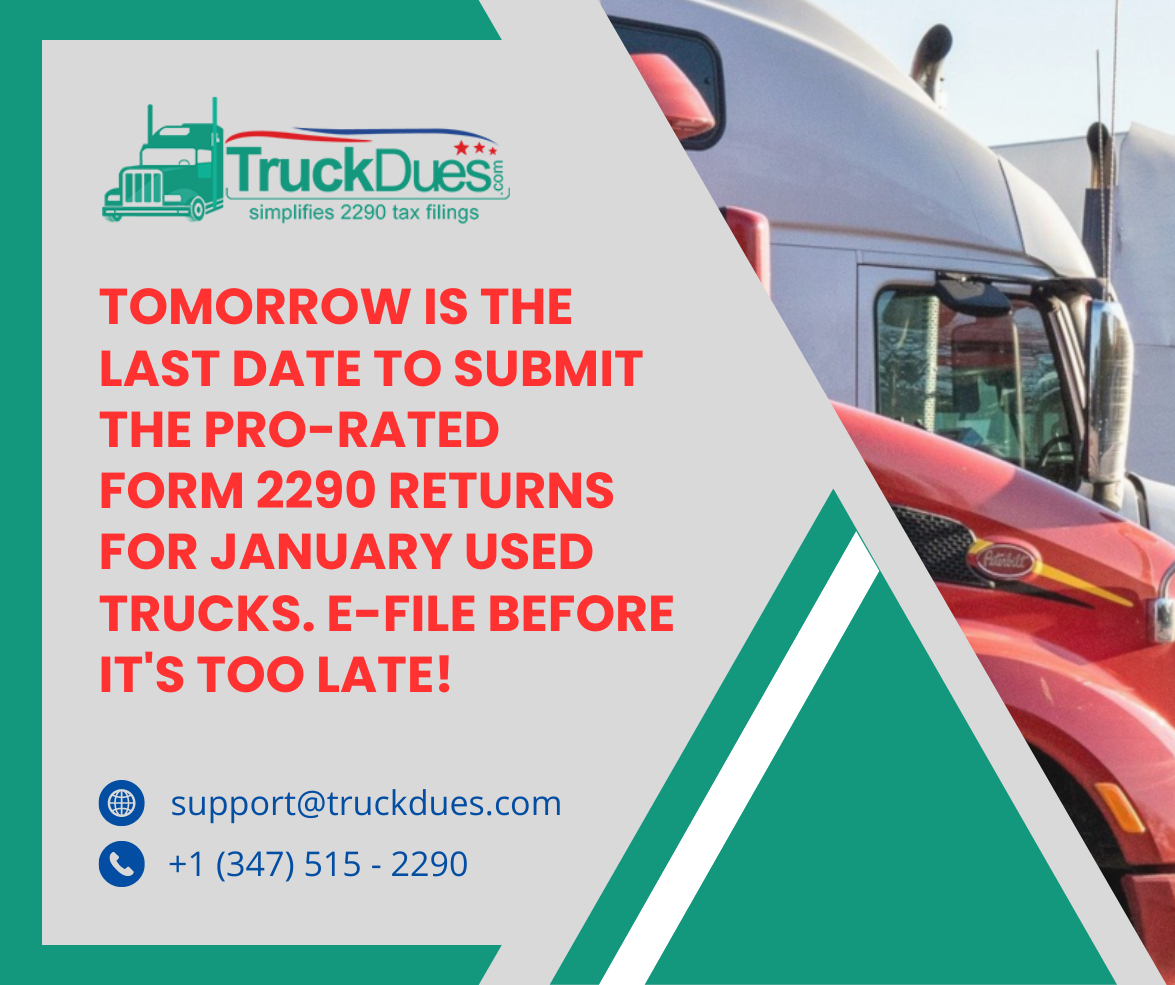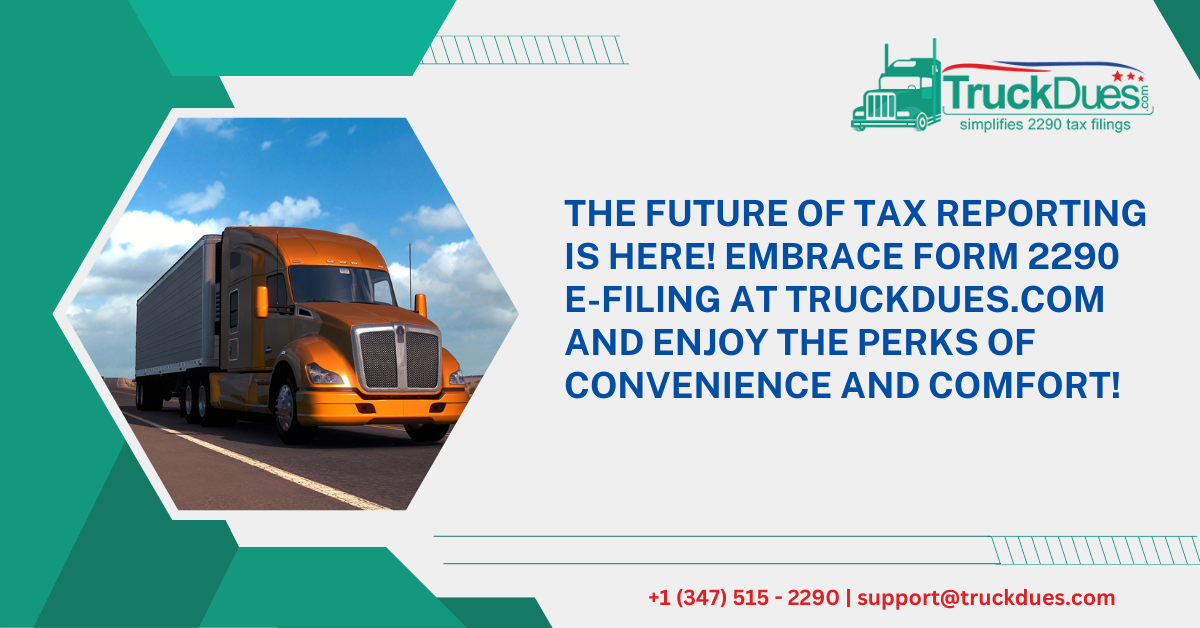Dear truckers! The last date to report Form 2290 HVUT returns for your March bought or used trucks is April 30, 2024. As it arrives in a few days, you must take the necessary actions to report and pay your 2290 truck tax returns. Only then, you will get the valid IRS stamped Schedule 1 receipt within the deadline which is highly essential to operate your heavy highway vehicle on public highways without any problems. Also, you will need the Schedule 1 receipt to renew your license, registration, insurance purposes and more. On the other hand, the IRS is very strict about tax filing and deadlines. As a trucker, staying compliant with your tax obligations and paying your taxes on time are primary responsibilities to run your trucking operations smoothly. If you have a recently purchased or first used vehicle in March, don’t waste any more time. Report your pro-rated tax returns on or before April 30, 2024. It would be best to E-file pro-rated Form 2290 HVUT returns in TruckDues.com to stay ahead of the deadline and avoid any hassles in your tax filing process.
